Key takeaways:
- Privacy applications, such as Signal and Brave, enhance user control over personal data and online presence.
- Windows users face significant privacy risks due to data tracking, making it crucial to implement privacy tools and settings.
- Regularly updating privacy settings and using two-factor authentication can significantly enhance online security.
- Switching to privacy-focused tools fosters a greater awareness of data collection practices by companies.
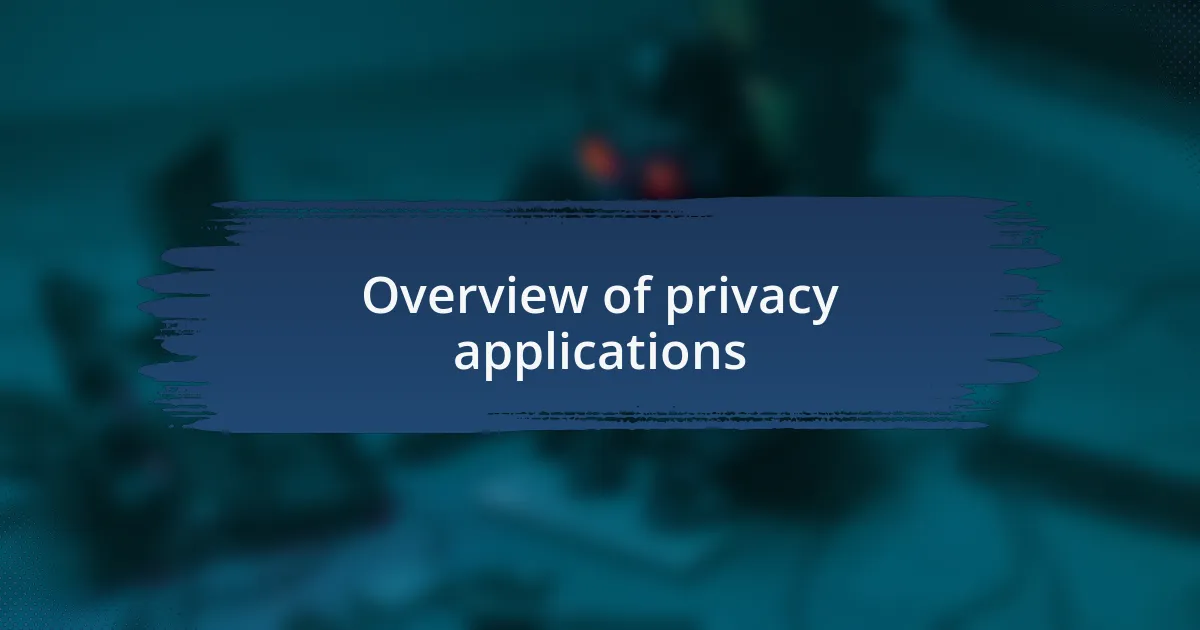
Overview of privacy applications
Privacy applications have become essential tools in our increasingly digital lives, providing users with options to safeguard their personal data. I remember the first time I used a privacy-focused application; it felt empowering to take control of my online presence. Have you ever thought about how much data you unknowingly share every day?
These applications often incorporate features like encryption, which protects your messages and data from unwanted access. I was amazed when I learned that even my simple texts could be shielded from prying eyes, making me feel as though my secrets were truly mine. With standalone apps or integrated features from existing services, the market is expanding rapidly, reflecting a growing awareness of privacy issues among users.
Moreover, many of these tools come with user-friendly interfaces, making privacy management accessible to everyone. I’ve seen friends who were once skeptical about these applications become avid users after just one positive experience. Isn’t it fascinating how a small change in our digital habits can lead to a significant shift in our sense of security?
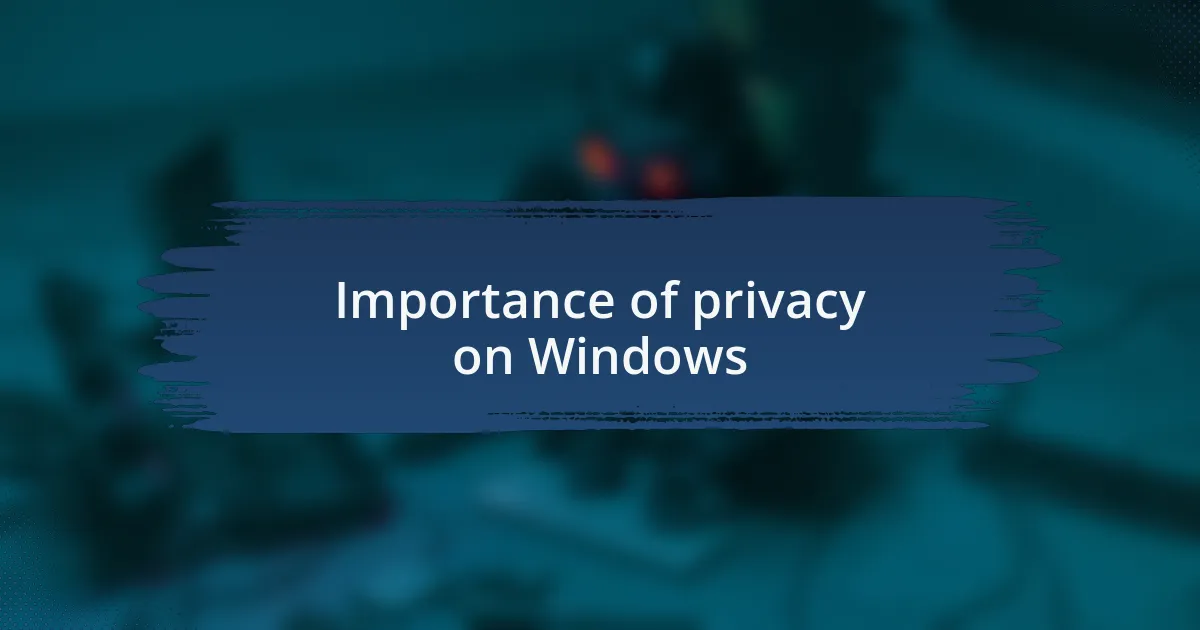
Importance of privacy on Windows
The significance of privacy on Windows cannot be overstated. As I first navigated the vast landscape of the internet on my Windows machine, I found myself astonished by how much personal information was floating around without my consent. Have you ever felt that sense of vulnerability when you realize your habits and preferences are being tracked?
When I started to think critically about my privacy, it became clear that protecting personal data is not just about keeping secrets; it’s about maintaining my identity. I recall a situation where a seemingly innocent app collected extensive data, leaving me wondering what else was being shared without my knowledge. This made me realize that every click, every search, and every online interaction holds value, and I must take charge of that data to protect myself.
Moreover, Windows being a mainstream operating system means it’s a prime target for various threats. I remember the relief when I found privacy-focused modifications that enhanced my security. It felt like adding extra locks to my doors in a digital world fraught with risks. How reassuring would it be to browse and communicate without constantly looking over my shoulder?
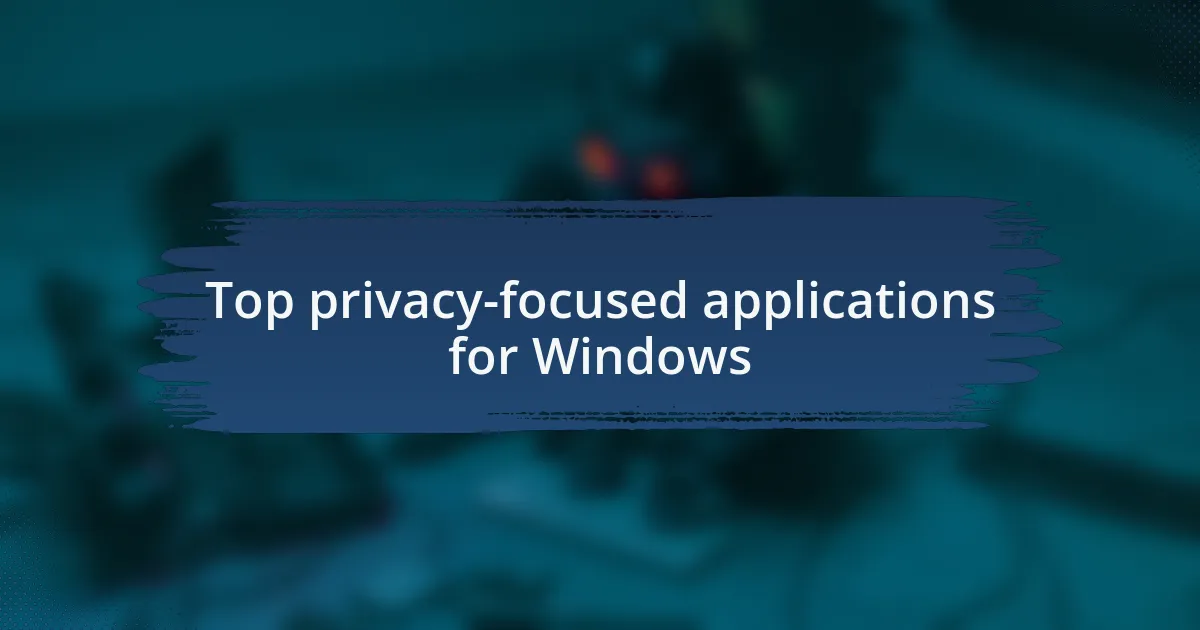
Top privacy-focused applications for Windows
One application that truly changed my experience is Signal, a messaging platform that prioritizes privacy. When I first switched from conventional messaging apps, I felt a wave of relief knowing my conversations were encrypted end-to-end. It’s like having a personal vault; would you share your secrets with just anyone?
Another standout for me is Brave, a browser that blocks ads and trackers by default. The first time I used it, I was amazed at how fast pages loaded without all those pesky ads. It felt liberating to surf the web with enhanced speed and reduced distractions while knowing that my browsing habits were shielded from prying eyes.
Lastly, I can’t overlook ProtonVPN. When I decided to use a VPN, it was as if a protective cloak wrapped around my online presence. I vividly remember connecting while using public Wi-Fi and feeling a profound sense of security. It’s a small step that goes a long way in ensuring that my digital footprint remains under my control. Isn’t it empowering to take such proactive measures for your online privacy?
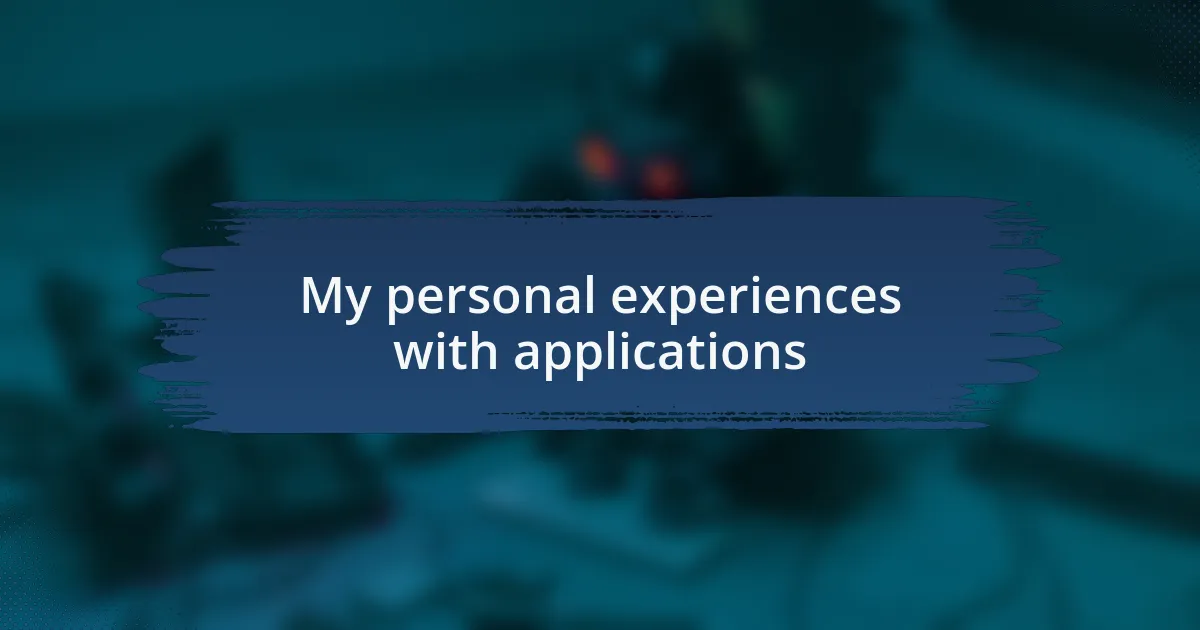
My personal experiences with applications
Using applications focused on privacy has really shifted how I engage online. I still recall the first time I installed DuckDuckGo as my default search engine. I was shocked at how free I felt not being bombarded by targeted ads. It made me wonder: what else could I be missing if I’m constantly tracked?
Another notable experience happened when I started using Tutanota for my email needs. Transitioning from mainstream email providers was a leap, but the moment I sent my first encrypted email, there was a sense of empowerment coursing through me. Could something as simple as email really protect my conversations from the outside world?
I also experimented with KeePass for managing passwords, which initially felt daunting. I remember the first time I generated and stored a complex password; it felt like I was donning digital armor. How reassuring is it to know that my online accounts are fortified, even if it took a bit of effort to set up?
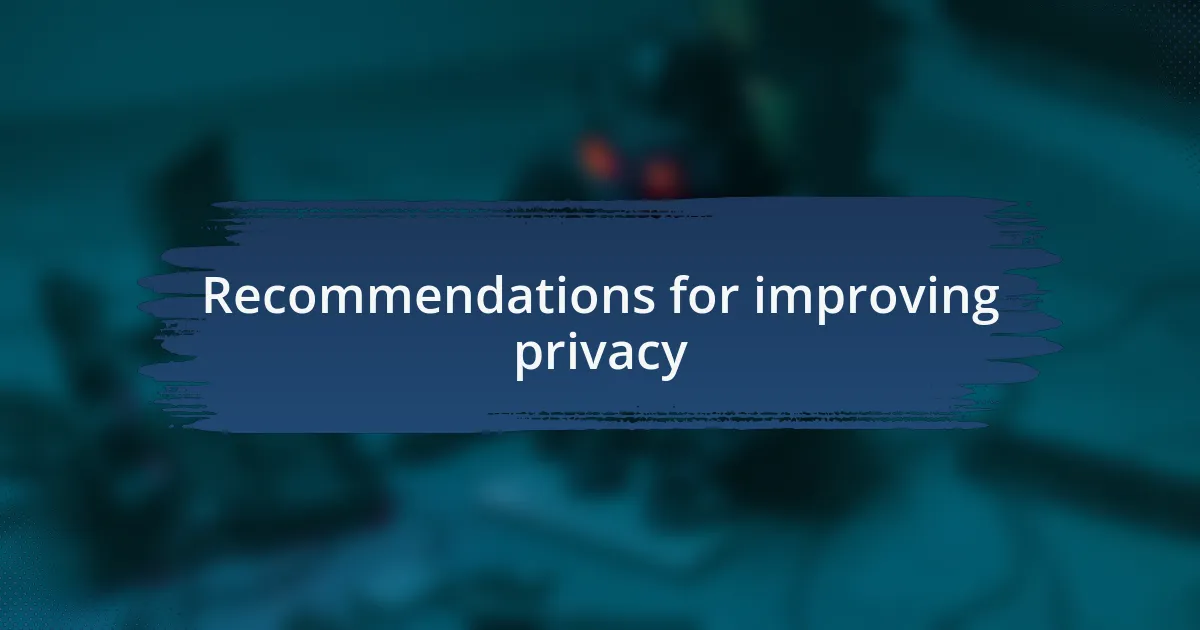
Recommendations for improving privacy
When thinking about improving your privacy, I can’t stress enough the importance of regularly updating your privacy settings on all applications. I remember a time when I overlooked a simple setting on my messaging app. That small oversight made me vulnerable to data leaks that could have been avoided with just a few clicks. It’s a little time investment that can yield significant peace of mind.
Another effective strategy is to utilize two-factor authentication wherever possible. I recall my hesitation when first setting it up; it felt like an extra hurdle. However, once I got used to it, I found it incredibly reassuring knowing that even if someone managed to crack my password, they wouldn’t easily access my accounts. Isn’t it empowering to take back control over our digital identities?
Lastly, consider using a Virtual Private Network (VPN) when browsing. I initially thought of it as an unnecessary layer until I used one during my travels. The instant feeling of security when accessing public Wi-Fi was like a weight being lifted off my shoulders. How often do we put ourselves at risk without even realizing it? Protecting your data doesn’t have to be complicated; it just requires a bit of dedication.
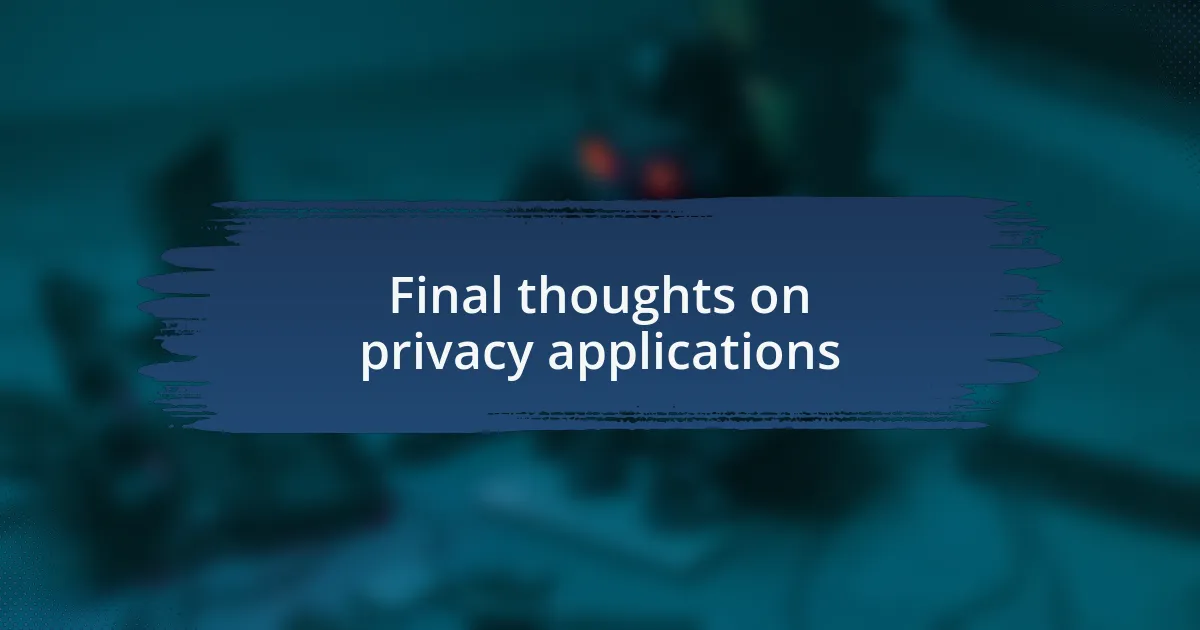
Final thoughts on privacy applications
It’s clear that privacy applications play a crucial role in safeguarding our personal information. I think back to the first time I used a privacy-focused browser; it felt liberating to navigate the web without the constant fear of being tracked. Isn’t it fascinating how a simple switch can transform your online experience?
Moreover, exploring these applications opened my eyes to the sheer volume of data that companies collect daily. I was genuinely shocked to learn how much my favorite apps were actually gathering. This realization not only motivated me to switch to more privacy-conscious alternatives but also sparked a desire to encourage friends and family to do the same.
In the end, investing time in privacy applications is more than just a protective measure—it’s a powerful statement about valuing your personal space in the digital world. When I chose to implement these tools, I felt like I was reclaiming my autonomy. Isn’t it worth taking a few proactive steps to protect what’s rightfully yours?